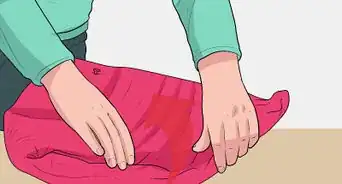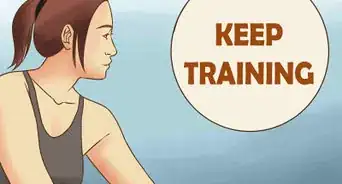This article is based on an expert interview with Brad Hurvitz, conducted by wikiHow Staff Editors. Brad Hurvitz is a Certified Swimming Instructor for My Baby Swims, an adolescent swimming school based in La Jolla, California. Brad is trained as an Infant Swimming Resource (ISR) instructor with ISR's Self-Rescue® program. He specializes in training children aged six months to six years of age survival skills like floating on their back to breathe and swimming back to the wall, while also educating parents on how to better keep their kids safe. He has a Master of Business Administration from Oregon State University.
Swimming pools are great for cooling off and having fun on a hot summer day, but they can also be dangerous, especially for children. Fortunately, by taking some basic safety precautions, you can help keep your child safe at the pool. In this video, swim instructor Brad Hurvitz shares his top pool safety tips for you and your family.
Key Takeaways
- Watch your child at all times when they’re in the water. Drowning can happen in seconds, so it’s important that children are always supervised.
- Be extra cautious of the deep end in pools, large flotation devices that children can get caught under, and any pool waterfalls that may be challenging for children.
- Always designate someone to watch the children in the pool instead of assuming someone is supervising. Even if there’s a large group of adults, that doesn’t mean someone is paying attention.
Video Transcript
A parent should watch their child the entire time they're in the water. Drowning typically occurs within seconds. So it's imperative that you watch your child. It's easy to convince yourself that you're attentive to your children at the pool, but the harsh reality is that parents are often present when drownings occur. Unfortunately, I've seen a lot of parents scrolling through social media, or having drinks at the barbecue while their kids are in the pool. These are dangerous situations as kids and parents can get lulled into a false sense of security. It is also necessary to know the pool your child is in as well as your child's true capabilities. If there's a deep end in the pool, and your child is not able to float on their back, or if there's a high wall that's difficult to grab hold of, be extra cautious in those areas. If there's a waterfall that may challenge your child, watch carefully when they're near that space. Be aware of large floatation devices that even strong swimmers can get caught under. These are just some of the examples of what to look for in a pool. A mistake many of us make without thinking about it is diffusion of responsibility. Six adults, one child, somebody will be watching her at all times, right? In a group, we may assume that somebody else is the responsible party, but too often nobody's actually taking responsibility. I often advise parents of my students to adopt a tag team system when near a pool. You can even create a water watch or necklace to hand to the responsible party. You can find these online. If dad is going to grab a drink, tell mom or uncle that they are responsible for the kids until they get back and vice versa. Point to a specific person to watch the kids instead of assuming somebody is watching them, as they might not be.






















































